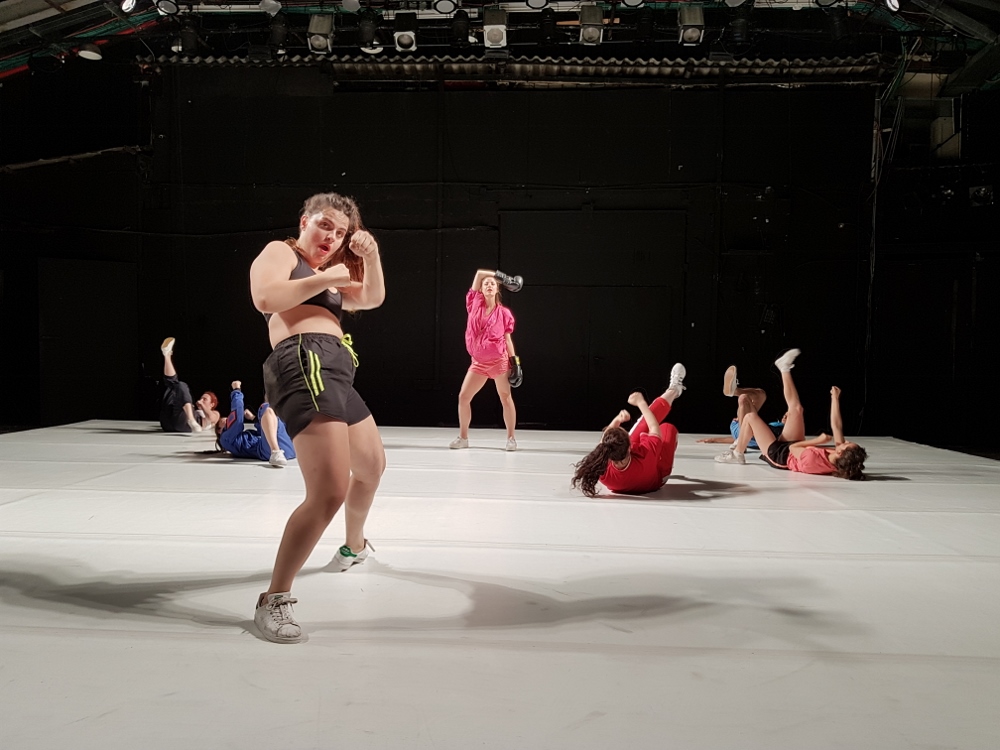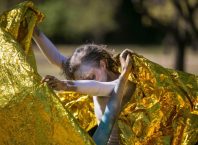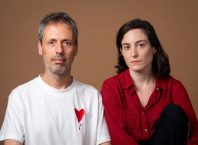Tmuna Theatre’s A-Genre is a festival that defies definition, embracing many different artistic forms of expression, yet always thought-provoking. Participating artists are asked to relate to a theme, with complete freedom as to form and content. A-Genre took place from April 25 – 28, 2018, and this year’s theme was “The Backyard” – not in the American suburban sense of a green lot complete with swing set and barbeque, but rather that place obscured from view, where anything that does not fit or is not pleasing to the eyes or mind, can be cast out and forgotten. At A-Genre the aim was to open up the “backyard” and bring its contents out to the light, where they can be seen and explored.
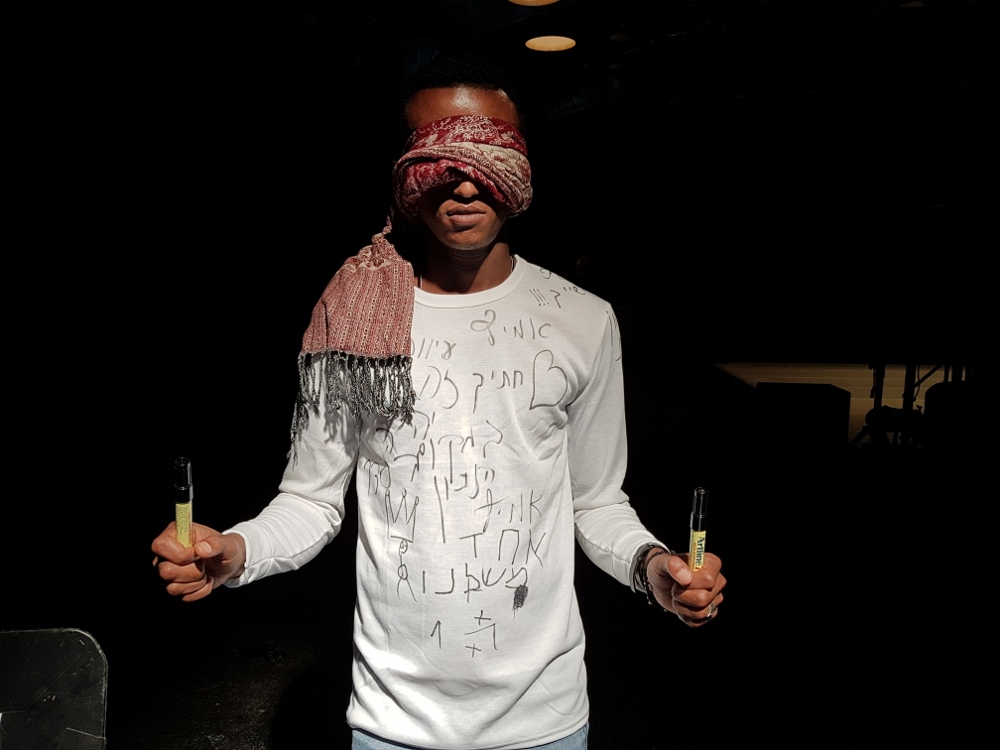
Some images once seen, cannot be forgotten. As I entered the theatre (most appropriately, the front entrance was closed for the duration of the festival and everyone had to use the ‘back’ door), I was confronted by a blindfolded man, Asmarov Negosha, his hands up, holding markers. What Do You Think of Me? – that was the name of this performative-interactive installation. 21-year-old Asmarov Negosha came to Israel from Eritrea six years ago seeking asylum. His status is still in question. Several months ago he stood on Dizengof Street, a central location in Tel Aviv, with his head covered, wearing a white T shirt, offering passers-by markers with which they could write what they think of him. Tmuna Theatre recreated this encounter at A-Genre. I was struck by the courage and strength of conviction necessary to place oneself in such a vulnerable position, and the empathy this elicited in others, as evidenced by what was written on his shirt. Some wrote “brave,” someone wrote “hottie” with a heart next to it, someone wrote “blind,” and someone else wrote “it will be all right.” As I stood and watched, a woman came by and wrote “Be strong.” In this dissolution of borders, inviting strangers to touch and comment on his body, he was embodying his situation as a refugee; his body, his life, in the hands of a foreign government, strangers.
The virtual world exists in the twilight zone of reality, where things are perhaps real, perhaps not. It is a realm that we, as a global society, are still struggling to fully comprehend, even though we are already immersed in it. I Don’t Want to See This, by Lior Zalmanson and Maya Ofir Magnat, examined the issue of disturbing and potentially harmful content shared on social media through a very clever, often humorous, and incredibly disturbing performance.
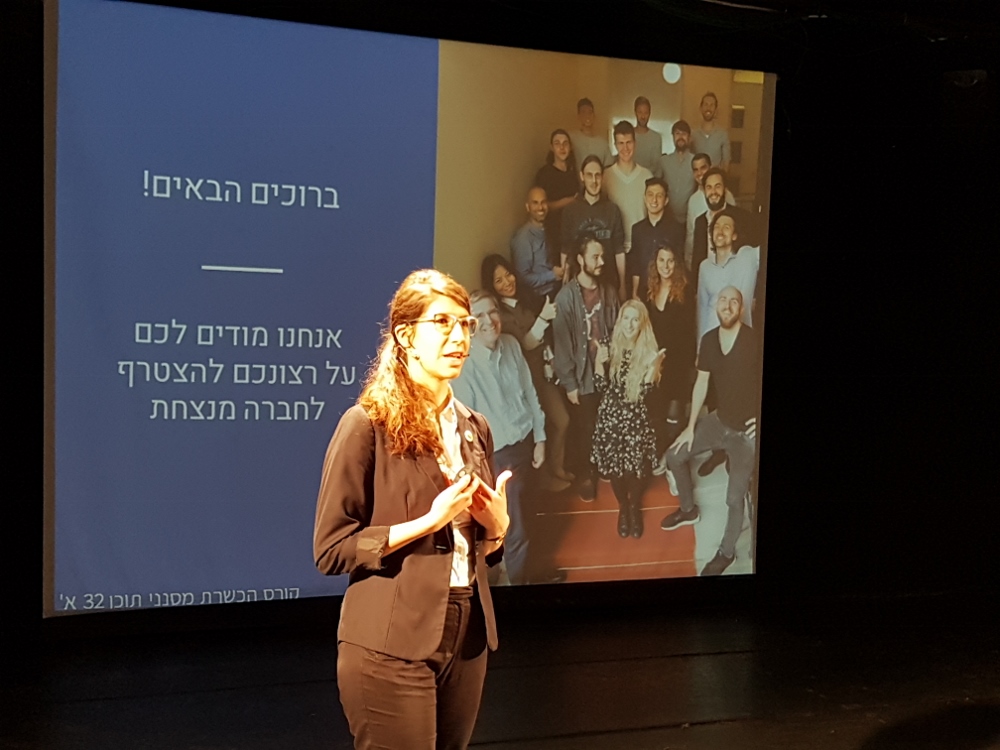
Their show took the form of a training workshop for Content Moderators – those are the people who review everything that is “reported;” with the audience as the trainees. The simulation was impeccable, with audience members required to sign a confidentiality agreement before entering. How do we make these decisions – as individuals, as a society, within the different social media and websites? The show’s content was based on The Guardian’s 2017 exposé of Facebook training manuals for Content Moderators and led by Maya Ofir Magnat as a training session.
Magnat was the perfect image of corporate composure, never breaking character, even when heckled by an audience member, recommending that trainees learn to disconnect emotionally when viewing content, or rattling off an impressive list of seriously disturbing verbal violence. After presenting the guidelines in each topic (sex, violence, etc), she had the trainees do an exercise, voting on whether content was permissible or should be deleted. One of the many striking moments for me was when one woman volunteered to read the example aloud (so that all could hear it and vote on it), yet when she looked at the text handed to her by Magnat, found that she was literally unable to bring herself to speak the words.

Hatikvah 69 by Alex Ben Ari and Faye Shapiro was another work that I found alluring, aesthetic and moving in a radical way. In this work, the Israeli national anthem, Hatikvah, is taken apart and re-assembled, generating new text for the anthem by substituting words from the canonic Even Shushan Hebrew Dictionary, according to a formula: begin at the noun (from the original text) and move down 7 words. This process resulted in 69 versions of the anthem, of which vocal artist Faye Shapiro performed 22 in the festival. Shapiro was monumental, the beauty of her voice merging with the jarring effect of the lyrics to open up the anthem, and with it, all the many thoughts, feelings, and questions that one has about not only the text, but all that it represents.
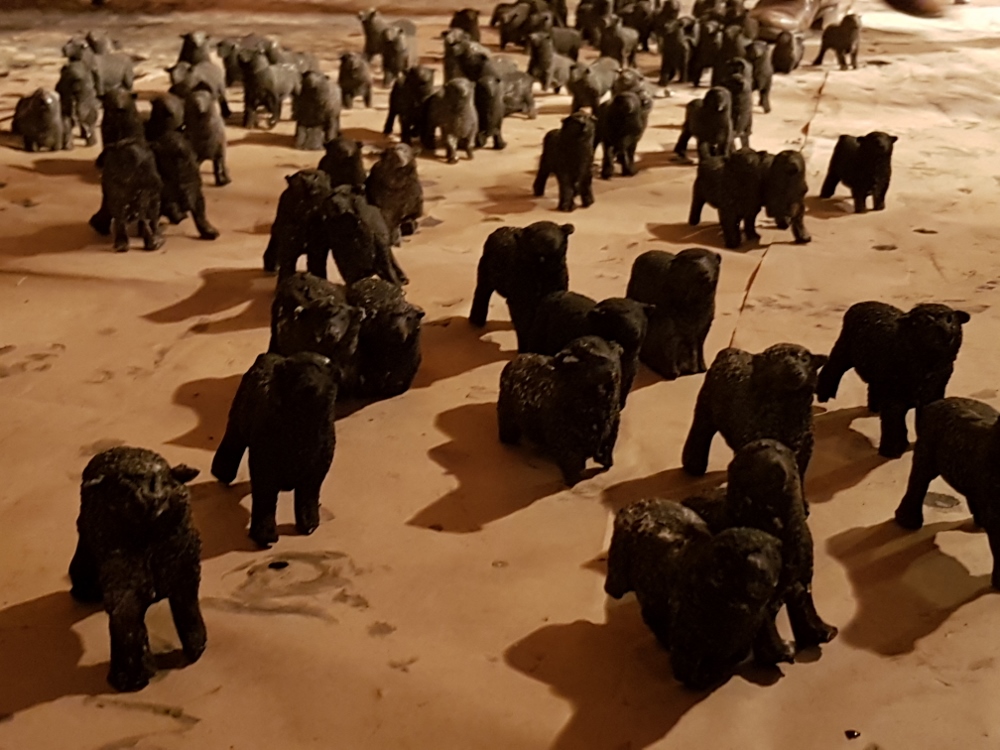
Bringing more of what is hidden out into the light, Radio Tmuna in conjuction with Kan Tarbut was active in the bar throughout the festival, with Shlomi Hatuka interviewing activists about their work. Shahar Marcus’s video The Orchard, reflected the artist’s piercing vision that always finds its mark, with illuminating cynicism, humor, and visual splendor. In this case, the artist was immersed to the neck, in a pool of oranges (whose name in Hebrew is literally ‘gold apple’), set in an orchard, as he sang a “classic” Israeli song made famous by Hatarnegolim, with lyrics by Haim Hefer, and music by Sasha Argov: Hakol Zahav (Everything is Gold). There are layers and layers of symbolism and references in this glowing, orange-gold video, encompassing nostalgia, irony, the destruction of orchards as Israel shifted from an agricultural economy to start-up nation, and even, if you will, Jewish legend. Another visually striking work was Traces by Moran Aviv Dvir, performed with Tamar Drozd. Small ceramic sheep were dipped, one by one, in black paint, as a growing flock of black sheep was assembled on the sand. Yoav Barel recreated the hidden fears of childhood in No Lion Out There – a dark cavern constructed in the foyer of the theatre. Neta Weiner and Stav Marin’s Lo At merged dance, martial arts and text in a very intriguing performance, with an excellent cast of dancers.
